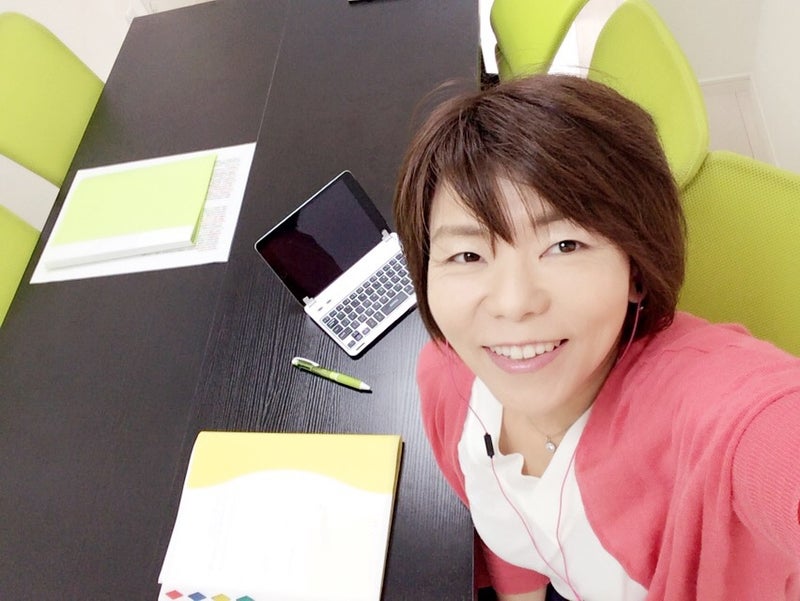こんにちは~
3か月で傷つきやすい人の生きづらさ克服。
凹まなくなる、ぶれなくなる「ブレーん塾」の時田ひさ子です。
小学校の卒業式に列席しました。
我が子は卒業しませんが、
PTA副会長と学校運営協議会委員なので
かなり前の方で紹介していただきます。
足、開かないようにきちんとしてなきゃ、、
寒くなくて助かります。
HSPとして不便だなぁと思うのは、
生理現象で動揺する回数が多いということです。
非HSPだったら、別に気にならない
であろうことが気になるのが不便です。
たとえば、空腹(笑)
基本、HSSによくある「行き当たりばったり」で「いい加減」なので、
空腹の対策なんてほとんどしていないじゃないですか(笑)
*そうじゃないというHSS型HSPさんはもちろん存在します(笑)
だけど、空腹は突然襲ってきて、
そして私を耐えがたい苦痛にいざないます(笑)
↑
大げさな表現ですが、
HSPにとっては、この突然襲ってくる生理現象が耐えがたく、、
空腹に耐えているときに、数時間前に食べておかなかった自分と
空腹を予測しなかったがために
なにも用意していない自分を責めます。
責めたって空腹はなくならないのに、
もう責めるしかなくなります(笑)
そして、この空腹から逃れられる瞬間を
じりじりと待つだけの「ガマンタイム」が長い!!(笑)
そんなとき、
日々鍛えた「無にする」を実践しようとするのですが、
無にするって、そーいうことじゃないんですよね(笑)
そう。
無になれるときって、
生理的に満たされているときに限ります。
なので、空腹やトイレを我慢しているときには、
無になんかなれっこないんです。
トイレに行きたくなったら、
途中で切り上げて
トイレに行ってから再度チャレンジするしかないんです。
空腹に関しては、
自分の調子のよいときは
一口で口に含めるおやつをカバンに忍ばせたりもできるのですが、
持っていると空腹でもないのに食べてしまうので(笑)
いつもカバンに忍ばせておく作戦は向きません(笑)
そう、行き当たりばったりなのです(笑)
*もちろん、そうじゃなく訓練されているHSS型HSPも存在します(笑)
さて、ブログの予告です。
明日までには、「Thrill!」HSS型HSP研究最前線 の続きをお送りできると思いますーー。
このところ「Thrill!」 が滞っていたのは、
実はこのところ、別のものを読んでいたからなのです。
HSS型HSPのことをそのままさしているであろう「マルチ・ポテンシャライト」というカテゴリーについて
エミリー・ワプニクさんが話しているトーク番組のシナリオです。
ご参考までに
TED TALKのエミリー・ワプニクさんが語った「マルチ・ポテンシャライト」の会のトークを掲載しておきますね。
Raise your hand if you've ever been asked the question "What do you want to be when you grow up?"
00:06
Now if you had to guess, how old would you say you were when you were first asked this question? You can just hold up fingers. Three. Five. Three. Five. Five. OK. Now, raise your hand if the question "What do you want to be when you grow up?" has ever caused you any anxiety.
00:27
(Laughter)
00:29
Any anxiety at all.
00:33
I'm someone who's never been able to answer the question "What do you want to be when you grow up?"
00:38
See, the problem wasn't that I didn't have any interests -- it's that I had too many. In high school, I liked English and math and art and I built websites and I played guitar in a punk band called Frustrated Telephone Operator. Maybe you've heard of us.
00:54
(Laughter)
00:57
This continued after high school, and at a certain point, I began to notice this pattern in myself where I would become interested in an area and I would dive in, become all-consumed, and I'd get to be pretty good at whatever it was, and then I would hit this point where I'd start to get bored. And usually I would try and persist anyway, because I had already devoted so much time and energy and sometimes money into this field. But eventually this sense of boredom, this feeling of, like, yeah, I got this, this isn't challenging anymore -- it would get to be too much. And I would have to let it go.
01:38
But then I would become interested in something else, something totally unrelated, and I would dive into that, and become all-consumed, and I'd be like, "Yes! I found my thing," and then I would hit this point again where I'd start to get bored. And eventually, I would let it go. But then I would discover something new and totally different, and I would dive into that.
02:03
This pattern caused me a lot of anxiety, for two reasons. The first was that I wasn't sure how I was going to turn any of this into a career. I thought that I would eventually have to pick one thing, deny all of my other passions, and just resign myself to being bored. The other reason it caused me so much anxiety was a little bit more personal. I worried that there was something wrong with this, and something wrong with me for being unable to stick with anything. I worried that I was afraid of commitment, or that I was scattered, or that I was self-sabotaging, afraid of my own success.
02:45
If you can relate to my story and to these feelings, I'd like you to ask yourself a question that I wish I had asked myself back then. Ask yourself where you learned to assign the meaning of wrong or abnormal to doing many things. I'll tell you where you learned it: you learned it from the culture.
03:10
We are first asked the question "What do you want to be when you grow up?" when we're about five years old. And the truth is that no one really cares what you say when you're that age.
03:19
(Laughter)
03:20
It's considered an innocuous question, posed to little kids to elicit cute replies, like, "I want to be an astronaut," or "I want to be a ballerina," or "I want to be a pirate." Insert Halloween costume here.
03:32
(Laughter)
03:34
But this question gets asked of us again and again as we get older in various forms -- for instance, high school students might get asked what major they're going to pick in college. And at some point, "What do you want to be when you grow up?" goes from being the cute exercise it once was to the thing that keeps us up at night. Why?
03:57
See, while this question inspires kids to dream about what they could be, it does not inspire them to dream about all that they could be. In fact, it does just the opposite, because when someone asks you what you want to be, you can't reply with 20 different things, though well-meaning adults will likely chuckle and be like, "Oh, how cute, but you can't be a violin maker and a psychologist. You have to choose."
04:24
This is Dr. Bob Childs --
04:25
(Laughter)
04:28
and he's a luthier and psychotherapist. And this is Amy Ng, a magazine editor turned illustrator, entrepreneur, teacher and creative director. But most kids don't hear about people like this. All they hear is that they're going to have to choose. But it's more than that. The notion of the narrowly focused life is highly romanticized in our culture. It's this idea of destiny or the one true calling, the idea that we each have one great thing we are meant to do during our time on this earth, and you need to figure out what that thing is and devote your life to it.
05:11
But what if you're someone who isn't wired this way? What if there are a lot of different subjects that you're curious about, and many different things you want to do? Well, there is no room for someone like you in this framework. And so you might feel alone. You might feel like you don't have a purpose. And you might feel like there's something wrong with you. There's nothing wrong with you. What you are is a multipotentialite.
05:40
(Laughter)
05:42
(Applause)
05:50
A multipotentialite is someone with many interests and creative pursuits. It's a mouthful to say. It might help if you break it up into three parts: multi, potential, and ite. You can also use one of the other terms that connote the same idea, such as polymath, the Renaissance person. Actually, during the Renaissance period, it was considered the ideal to be well-versed in multiple disciplines. Barbara Sher refers to us as "scanners." Use whichever term you like, or invent your own. I have to say I find it sort of fitting that as a community, we cannot agree on a single identity.
06:29
(Laughter)
06:33
It's easy to see your multipotentiality as a limitation or an affliction that you need to overcome. But what I've learned through speaking with people and writing about these ideas on my website, is that there are some tremendous strengths to being this way. Here are three multipotentialite super powers.
06:55
One: idea synthesis. That is, combining two or more fields and creating something new at the intersection. Sha Hwang and Rachel Binx drew from their shared interests in cartography, data visualization, travel, mathematics and design, when they founded Meshu. Meshu is a company that creates custom geographically-inspired jewelry. Sha and Rachel came up with this unique idea not despite, but because of their eclectic mix of skills and experiences. Innovation happens at the intersections. That's where the new ideas come from. And multipotentialites, with all of their backgrounds, are able to access a lot of these points of intersection.
07:47
The second multipotentialite superpower is rapid learning. When multipotentialites become interested in something, we go hard. We observe everything we can get our hands on. We're also used to being beginners, because we've been beginners so many times in the past, and this means that we're less afraid of trying new things and stepping out of our comfort zones. What's more, many skills are transferable across disciplines, and we bring everything we've learned to every new area we pursue, so we're rarely starting from scratch.
08:22
Nora Dunn is a full-time traveler and freelance writer. As a child concert pianist, she honed an incredible ability to develop muscle memory. Now, she's the fastest typist she knows.
08:35
(Laughter)
08:37
Before becoming a writer, Nora was a financial planner. She had to learn the finer mechanics of sales when she was starting her practice, and this skill now helps her write compelling pitches to editors. It is rarely a waste of time to pursue something you're drawn to, even if you end up quitting. You might apply that knowledge in a different field entirely, in a way that you couldn't have anticipated.
09:02
The third multipotentialite superpower is adaptability; that is, the ability to morph into whatever you need to be in a given situation. Abe Cajudo is sometimes a video director, sometimes a web designer, sometimes a Kickstarter consultant, sometimes a teacher, and sometimes, apparently, James Bond.
09:25
(Laughter)
09:27
He's valuable because he does good work. He's even more valuable because he can take on various roles, depending on his clients' needs. Fast Company magazine identified adaptability as the single most important skill to develop in order to thrive in the 21st century. The economic world is changing so quickly and unpredictably that it is the individuals and organizations that can pivot in order to meet the needs of the market that are really going to thrive.
09:57
Idea synthesis, rapid learning and adaptability: three skills that multipotentialites are very adept at, and three skills that they might lose if pressured to narrow their focus. As a society, we have a vested interest in encouraging multipotentialites to be themselves. We have a lot of complex, multidimensional problems in the world right now, and we need creative, out-of-the-box thinkers to tackle them.
10:29
Now, let's say that you are, in your heart, a specialist. You came out of the womb knowing you wanted to be a pediatric neurosurgeon. Don't worry -- there's nothing wrong with you, either.
10:42
(Laughter)
10:43
In fact, some of the best teams are comprised of a specialist and multipotentialite paired together. The specialist can dive in deep and implement ideas, while the multipotentialite brings a breadth of knowledge to the project. It's a beautiful partnership. But we should all be designing lives and careers that are aligned with how we're wired. And sadly, multipotentialites are largely being encouraged simply to be more like their specialist peers.
11:12
So with that said, if there is one thing you take away from this talk, I hope that it is this: embrace your inner wiring, whatever that may be. If you're a specialist at heart, then by all means, specialize. That is where you'll do your best work. But to the multipotentialites in the room, including those of you
え?これも日本語で読みたいですか?
いいですねーーー。
ちなみに、こちら、
YOUTUBEで再生できますし、
日本語にも翻訳されてますからご興味がありましたら見てみてくださいね!
まるで
私たちHSS型HSPのことを言われているびっくりなさると思いますよ!!
![]()
![]()
![]()
![]()
|
|




